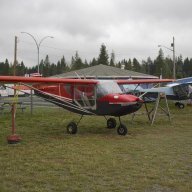Hi Bill. In Canada, with our ultralights, once a person owns one they are responsible for its maintenance. Transport Canada, when it set out the regulations for ultralights, specified this. Doesn't matter if an AME worked on it. Doesn't matter if it is falling to pieces. If the wing falls off 2 minutes after being bought, that is the owner's problem. I like that because it puts the onus on the owner to make sure all is well. We have 2 types of ultralights: AULA (advanced) and BULA (basic). IN Basic you can do anything you wish to the plane. In advanced, you need to be in compliance with the manufacturer on major components. We have no annuals, no TBOs, and so on. The idea was to keep the costs down.


